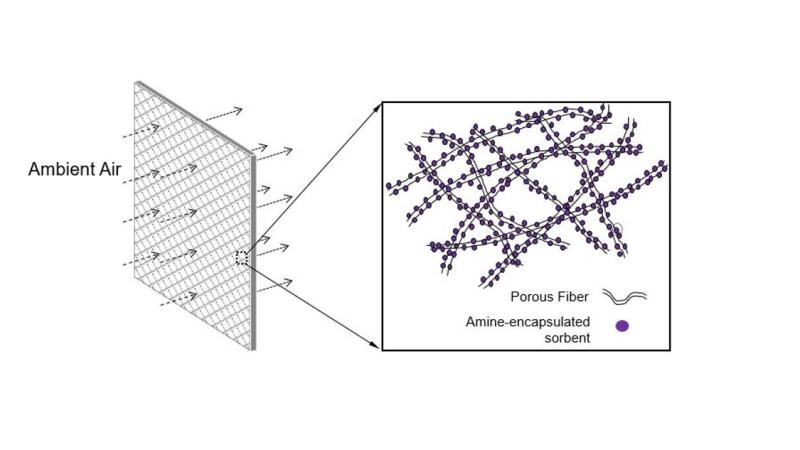Department of Energy grant supports development of unique technology to capture CO2
October 12, 2020

Carbon capture technologies play a critical role in reducing greenhouse gas emissions from power plants and factories, while harnessing carbon dioxide (CO2) for other energy production.
With the support of a grant from the Department of Energy, Miao Yu, the Priti and Mukesh Chatter ’82 Career Development Chair of Chemical and Biological Engineering at Rensselaer Polytechnic Institute, will develop a novel porous material capable of capturing even very small concentrations of CO2 in the air and collecting the gas for further use
This challenge is more nuanced than it may sound. Yu and his team will use amine molecules to trap the CO2, but the bond formed during that chemical reaction must be broken so that the gas can be gathered. And in order to do that, the material has to be heated. The problem, Yu said, is that when the amine molecules are heated they will evaporate.
Yu and his team will take a unique approach that involves loading amine molecules into a porous material, such as carbon or silica, through which CO2 can pass and get trapped. Another porous coating will cover this material, trapping the amine molecules inside.
“The porous coating will have a pore size smaller than the amine molecules, so they can’t get out,” said Yu, who is also a member of the Center for Biotechnology and Interdisciplinary Studies at Rensselaer (CBIS).
The material will be electrospun into porous fibers, which can be woven into mats that could be hung vertically so that air could easily pass, or be blown, through them.
In addition to reducing carbon emissions, Yu believes this technology has the potential to generate clean energy in remote places or after natural disasters.
“In those areas, we can use this technology to capture CO2 from the air and then combine that with the hydrogen generated from solar energy in order to produce liquid fuel,” Yu said.
This work furthers Yu’s research aimed at making carbon capture technologies that are more efficient and cost-effective. In his previous work, he’s developed membranes capable of capturing CO2, while filtering-out other molecules like water.
“Professor Yu’s approach to capturing carbon in new and novel ways plays an integral role in developing the next generation of clean energy technologies,” said Deepak Vashishth, the director of CBIS.